Rob Epstein
출생 : 1955-04-06, New Jersey, United States
약력
Rob Epstein, also credited as Robert P. Epstein is a gay non-fiction filmmaker, director, producer, writer and editor. Epstein has won two Academy Awards for Best Documentary Feature for the films The Times of Harvey Milk and Common Threads: Stories from the Quilt. He has also won four national Emmy Awards, three Peabody Awards, two DuPont Columbia Journalism awards, a Guggenheim Fellowship and numerous other awards for his documentary films.

Producer
This riotous concert film documents New York theater legend Taylor Mac's joyous, challenging, and ostentatiously queer 24-hour musical performance. Featuring virtuoso musicians, innovative costumes, and the American myth as told by sailor's ditties, disco, and sugary pop alike, Mac's cathartic celebration is not to be missed.

Director
This riotous concert film documents New York theater legend Taylor Mac's joyous, challenging, and ostentatiously queer 24-hour musical performance. Featuring virtuoso musicians, innovative costumes, and the American myth as told by sailor's ditties, disco, and sugary pop alike, Mac's cathartic celebration is not to be missed.

With vintage footage, interviews, and Marc Huestis' own energy and humor at the center, Impresario is an homage to a San Francisco icon and one of the founders of Frameline.

Director
With one of the most memorably stunning voices that has ever hit the airwaves, Linda Ronstadt burst onto the 1960s folk rock music scene in her early twenties.

Director
Fifty years after the Stonewall uprising, Oscar-winning filmmakers Rob Epstein and Jeffrey Friedman travel to three diverse communities – Salt Lake City, San Francisco, and Tuscaloosa, Alabama – for an unflinching look at LGBTQ Pride, from the perspective of a younger generation for whom it still has personal urgency.

Editor
고통을 지켜볼 것인가. 치료를 포기할 것인가. 투병 중인 말기 환자들과 그 가족에게 다가온 특별한 의료 전문가들. 그들은 죽음을 멈출 수 없지만 죽음을 다룰 줄 안다.

Director of Photography
고통을 지켜볼 것인가. 치료를 포기할 것인가. 투병 중인 말기 환자들과 그 가족에게 다가온 특별한 의료 전문가들. 그들은 죽음을 멈출 수 없지만 죽음을 다룰 줄 안다.

Producer
고통을 지켜볼 것인가. 치료를 포기할 것인가. 투병 중인 말기 환자들과 그 가족에게 다가온 특별한 의료 전문가들. 그들은 죽음을 멈출 수 없지만 죽음을 다룰 줄 안다.

Director
고통을 지켜볼 것인가. 치료를 포기할 것인가. 투병 중인 말기 환자들과 그 가족에게 다가온 특별한 의료 전문가들. 그들은 죽음을 멈출 수 없지만 죽음을 다룰 줄 안다.

Himself
What do filmmakers as disparate as Kevin Smith, Ed Burns, Rob Epstein, and Barbara Hammer have in common? A secret weapon known as Bob Hawk. As a veteran of the American independent film scene since its inception, the cinephile and consultant has been a regular, cherished presence at film festivals and markets for over three decades. Hawk saw promise in scrappy, independently produced films like Clerks and The Brothers McMullen when no one else even knew to look, and he brought these films to the attention of the Sundance Film Festival, thereby launching multiple careers in the process. An unsung champion of new voices, he has discovered innovative work, nurtured new talents, and brokered relationships with film festivals and critics alike, while staying out of the spotlight—until now. At 75, Bob Hawk looks back on a still-vibrant life in independent film, exploring how the rebellious gay son of a preacher found his calling as a behind-the-scenes film impresario.

Producer
The story of the gold-plated statuette that became the film industry's most coveted prize, AND THE OSCAR GOES TO... traces the history of the Academy itself, which began in 1927 when Louis B. Mayer, then head of MGM, led other prominent members of the industry in forming this professional honorary organization. Two years later the Academy began bestowing awards, which were nicknamed "Oscar," and quickly came to represent the pinnacle of cinematic achievement.

Writer
The story of the gold-plated statuette that became the film industry's most coveted prize, AND THE OSCAR GOES TO... traces the history of the Academy itself, which began in 1927 when Louis B. Mayer, then head of MGM, led other prominent members of the industry in forming this professional honorary organization. Two years later the Academy began bestowing awards, which were nicknamed "Oscar," and quickly came to represent the pinnacle of cinematic achievement.

Director
The story of the gold-plated statuette that became the film industry's most coveted prize, AND THE OSCAR GOES TO... traces the history of the Academy itself, which began in 1927 when Louis B. Mayer, then head of MGM, led other prominent members of the industry in forming this professional honorary organization. Two years later the Academy began bestowing awards, which were nicknamed "Oscar," and quickly came to represent the pinnacle of cinematic achievement.
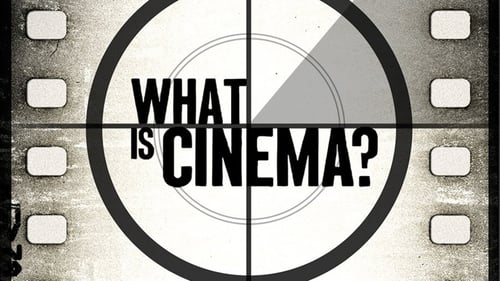
Self
Using the words and ideas of great filmmakers, from archival interviews with Alfred Hitchcock and Robert Bresson to new interviews with Mike Leigh, David Lynch, and Jonas Mekas, Oscar-winning filmmaker Chuck Workman shows what these filmmakers and others do that can't be expressed in words - but only in cinema.

Director
갓 스물이 된 린다 보어먼(아만다 사이프리드)은 숨 막히는 삶을 살고 있다. 혼외임신 전적이 있는 그녀를 부모는 엄하게 다스리고, 그녀도 어느 정도 부모에게 순종한다. 하지만 척 트레이너(피터 사스가드)라는 사업가를 만나 결혼하게 되면서 그녀의 삶은 급격한 변화를 맞는다. 부모로부터 벗어나 자유로운 삶을 꿈꿨을 뿐인 그녀는 알고 보니 포주였던 척을 돕기 위해 린다 러브레이스란 애칭을 달고 포르노 배우 일에 뛰어든다. 다행히 목구멍 깊숙이에서 뛰어난 구강성교 기술로 일약 스타덤에 오르지만, 그녀 뒤에는 늘 그녀의 성공을 악착같이 착취하는 척이 있다.
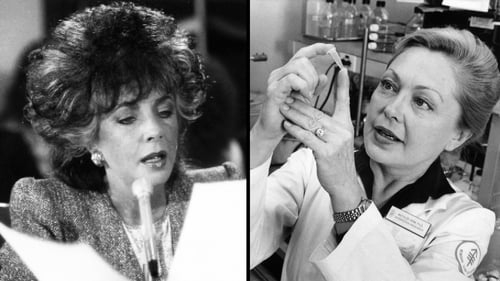
Director
When AIDS struck in the early 1980s, a scientist and a movie star did not have to respond - but they did. Dr. Mathilde Krim and Elizabeth Taylor joined forces to create amfAR, the Foundation for AIDS Research. The fight against HIV has never been the same. The Perfect Host reveals how two powerful and very different women came together, and what their combined efforts achieved. With passion and wit, Taylor wielded celebrity as a weapon against government indifference while Krim's commitment to science ensured support for the most promising research areas. Today, the only man cured of AIDS can thank research championed by Mathilde Krim. Visually dazzling and emotionally compelling, this story offers a surprising perspective on the still ongoing fight against AIDS.

Himself
In the aftermath of Stonewall, a newly politicized Vito Russo found his voice as a gay activist and critic of LGBTQ+ representation in the media. He went on to write "The Celluloid Closet", the first book to critique Hollywood's portrayals of gays on screen. During the AIDS crisis in the 1980s, Vito became a passionate advocate for justice via the newly formed ACT UP, before his death in 1990.

Producer
1957 뉴욕, 음란물 출판 및 판매 행위 혐의로 출판업자인 로렌스 펄링게티에 대한 재판이 열립니다.
문제가 된 책은 바로 알렌 긴스버그의 "하울(아우성, 울부짖음)"이라는 시집이었습니다. 알렌 긴스버그는 비트 제네레이션 작가중 한 명이었고 5,60년대 히피 문화의 아이콘이었던 인물로 당시대를 대표했던 밥 딜런과의 친분으로도 유명했습니다. 시집의 판매를 중지시키려던 기성세대들의 의도와는 달리 "하울"은 언론의 주목을 받고 책이 매진되면서 사회적 반향을 일으키고 긴스버그는 일약 유명작가가 돼버립니다

Writer
1957 뉴욕, 음란물 출판 및 판매 행위 혐의로 출판업자인 로렌스 펄링게티에 대한 재판이 열립니다.
문제가 된 책은 바로 알렌 긴스버그의 "하울(아우성, 울부짖음)"이라는 시집이었습니다. 알렌 긴스버그는 비트 제네레이션 작가중 한 명이었고 5,60년대 히피 문화의 아이콘이었던 인물로 당시대를 대표했던 밥 딜런과의 친분으로도 유명했습니다. 시집의 판매를 중지시키려던 기성세대들의 의도와는 달리 "하울"은 언론의 주목을 받고 책이 매진되면서 사회적 반향을 일으키고 긴스버그는 일약 유명작가가 돼버립니다

Director
1957 뉴욕, 음란물 출판 및 판매 행위 혐의로 출판업자인 로렌스 펄링게티에 대한 재판이 열립니다.
문제가 된 책은 바로 알렌 긴스버그의 "하울(아우성, 울부짖음)"이라는 시집이었습니다. 알렌 긴스버그는 비트 제네레이션 작가중 한 명이었고 5,60년대 히피 문화의 아이콘이었던 인물로 당시대를 대표했던 밥 딜런과의 친분으로도 유명했습니다. 시집의 판매를 중지시키려던 기성세대들의 의도와는 달리 "하울"은 언론의 주목을 받고 책이 매진되면서 사회적 반향을 일으키고 긴스버그는 일약 유명작가가 돼버립니다

Director
A collection of shorts made by various directors in response to 9/11.
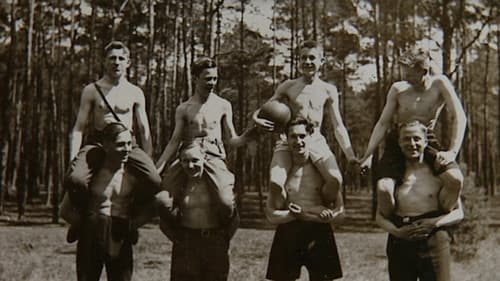
Producer
During the Nazi regime, there was widespread persecution of homosexual men, which started in 1871 with the Paragraph 175 of the German Penal Code. Thousands were murdered in concentration camps. This powerful and disturbing documentary, narrated by Rupert Everett, presents for the first time the largely untold testimonies of some of those who survived.

Director
During the Nazi regime, there was widespread persecution of homosexual men, which started in 1871 with the Paragraph 175 of the German Penal Code. Thousands were murdered in concentration camps. This powerful and disturbing documentary, narrated by Rupert Everett, presents for the first time the largely untold testimonies of some of those who survived.

Producer
This documentary highlights the historical contexts that gay, lesbian, bisexual and transgender individuals have occupied in cinema history, and shows the evolution of the entertainment industry's role in shaping perceptions of LGBT figures. The issues addressed include secrecy – which initially defined homosexuality – as well as the demonization of the homosexual community with the advent of AIDS, and finally the shift toward acceptance and positivity in the modern era.

Director
This documentary highlights the historical contexts that gay, lesbian, bisexual and transgender individuals have occupied in cinema history, and shows the evolution of the entertainment industry's role in shaping perceptions of LGBT figures. The issues addressed include secrecy – which initially defined homosexuality – as well as the demonization of the homosexual community with the advent of AIDS, and finally the shift toward acceptance and positivity in the modern era.

Producer
Accomplished documentarians Rob Epstein and Jeff Friedman take a trip across the American South and Southwest, asking people about their hopes and fears.

Director
Accomplished documentarians Rob Epstein and Jeff Friedman take a trip across the American South and Southwest, asking people about their hopes and fears.
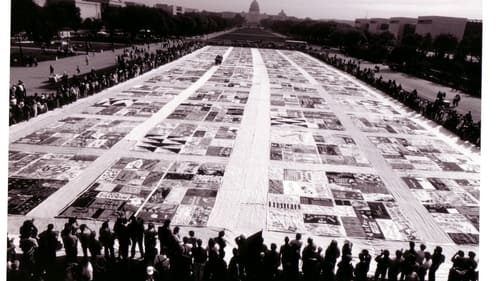
Producer
On the eve of 1987's Second National March on Washington for Lesbian and Gay Rights, surviving families and friends of people who have died of AIDS prepare panels to be added to a large-scale memorial quilt project. Drawing from the sea of names memorialized, director Robert Epstein focuses on the lives of six people. Alongside the intimate profiles offered, through news footage and interviews, Epstein puts the AIDS crisis in the larger context of social and government response to the disease.

Editor
On the eve of 1987's Second National March on Washington for Lesbian and Gay Rights, surviving families and friends of people who have died of AIDS prepare panels to be added to a large-scale memorial quilt project. Drawing from the sea of names memorialized, director Robert Epstein focuses on the lives of six people. Alongside the intimate profiles offered, through news footage and interviews, Epstein puts the AIDS crisis in the larger context of social and government response to the disease.

Writer
On the eve of 1987's Second National March on Washington for Lesbian and Gay Rights, surviving families and friends of people who have died of AIDS prepare panels to be added to a large-scale memorial quilt project. Drawing from the sea of names memorialized, director Robert Epstein focuses on the lives of six people. Alongside the intimate profiles offered, through news footage and interviews, Epstein puts the AIDS crisis in the larger context of social and government response to the disease.

Director
On the eve of 1987's Second National March on Washington for Lesbian and Gay Rights, surviving families and friends of people who have died of AIDS prepare panels to be added to a large-scale memorial quilt project. Drawing from the sea of names memorialized, director Robert Epstein focuses on the lives of six people. Alongside the intimate profiles offered, through news footage and interviews, Epstein puts the AIDS crisis in the larger context of social and government response to the disease.

Producer
A recording of a play about the intangible impacts AIDS has on a community. This is a moving, beautifully photographed combination of theater and documentary that captures the incredible excitement of live theater and intensifies the power of the play's message.

Director
A recording of a play about the intangible impacts AIDS has on a community. This is a moving, beautifully photographed combination of theater and documentary that captures the incredible excitement of live theater and intensifies the power of the play's message.
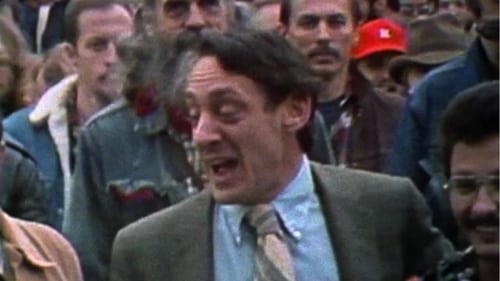
Writer
85년 아카데미 장편다큐멘터리 부문 수상작 하비 밀크는 게이 활동가로서는 최초로 샌프란시스코의 시정 감시관(Supervisor)에 선출된 인물이다. 그러나, 공개적으로 자신이 게이임을 선언했을 뿐만 아니라 지역 사회의 산적한 문제를 진보적인 관점에서 해결하고자 했던 그의 노력은 수많은 편견과 장애물에 부딪치게 되고, 결국 그를 죽음에까지 이르게 한다. 1985년도 아카데미 장편 다큐멘터리 작품상을 수상하기도 한 이 작품은, 80년대 미국의 대표적인 독립 다큐멘터리이다. 감독 로버트 엡스타인은, 게이들에 대한 편견을 지니고 있던 좌파 운동가의 고백으로부터 하비가 살해당한 바로 그 날 조직된 45000 명의 촛불 시위 장면에 이르기까지, 주변 인물의 인터뷰 및 방대한 자료 화면을 동원하며, 새로운 세상을 갈구한 사회 운동과 게이 액티비즘에 대한 면밀한 케이스 스터디와도 같은 작품을 만들어냈다. 개인과 사회의 상호작용이 언제나 구체적인 역사적 계기를 통해서 교차하듯, 은 60년대 이후 동성애운동이 발화하기 시작한 샌프란시스코의 정치적·사회적 분위기를 그려냄과 동시에, 장벽을 돌파하려던 활동가, 그의 조직적 활동, 그리고 그를 가로막은 거대한 편견의 요새를 세부묘사한다. 동성애자는 물론 미국내의 모든 정치적 소수자들과 함께 손잡고 권익옹호를 위해 애썼던 한 활동가의 초상은 진정 시대를 초월한 운동가의 의지를 실감하게 한다.

Editor
85년 아카데미 장편다큐멘터리 부문 수상작 하비 밀크는 게이 활동가로서는 최초로 샌프란시스코의 시정 감시관(Supervisor)에 선출된 인물이다. 그러나, 공개적으로 자신이 게이임을 선언했을 뿐만 아니라 지역 사회의 산적한 문제를 진보적인 관점에서 해결하고자 했던 그의 노력은 수많은 편견과 장애물에 부딪치게 되고, 결국 그를 죽음에까지 이르게 한다. 1985년도 아카데미 장편 다큐멘터리 작품상을 수상하기도 한 이 작품은, 80년대 미국의 대표적인 독립 다큐멘터리이다. 감독 로버트 엡스타인은, 게이들에 대한 편견을 지니고 있던 좌파 운동가의 고백으로부터 하비가 살해당한 바로 그 날 조직된 45000 명의 촛불 시위 장면에 이르기까지, 주변 인물의 인터뷰 및 방대한 자료 화면을 동원하며, 새로운 세상을 갈구한 사회 운동과 게이 액티비즘에 대한 면밀한 케이스 스터디와도 같은 작품을 만들어냈다. 개인과 사회의 상호작용이 언제나 구체적인 역사적 계기를 통해서 교차하듯, 은 60년대 이후 동성애운동이 발화하기 시작한 샌프란시스코의 정치적·사회적 분위기를 그려냄과 동시에, 장벽을 돌파하려던 활동가, 그의 조직적 활동, 그리고 그를 가로막은 거대한 편견의 요새를 세부묘사한다. 동성애자는 물론 미국내의 모든 정치적 소수자들과 함께 손잡고 권익옹호를 위해 애썼던 한 활동가의 초상은 진정 시대를 초월한 운동가의 의지를 실감하게 한다.

Producer
85년 아카데미 장편다큐멘터리 부문 수상작 하비 밀크는 게이 활동가로서는 최초로 샌프란시스코의 시정 감시관(Supervisor)에 선출된 인물이다. 그러나, 공개적으로 자신이 게이임을 선언했을 뿐만 아니라 지역 사회의 산적한 문제를 진보적인 관점에서 해결하고자 했던 그의 노력은 수많은 편견과 장애물에 부딪치게 되고, 결국 그를 죽음에까지 이르게 한다. 1985년도 아카데미 장편 다큐멘터리 작품상을 수상하기도 한 이 작품은, 80년대 미국의 대표적인 독립 다큐멘터리이다. 감독 로버트 엡스타인은, 게이들에 대한 편견을 지니고 있던 좌파 운동가의 고백으로부터 하비가 살해당한 바로 그 날 조직된 45000 명의 촛불 시위 장면에 이르기까지, 주변 인물의 인터뷰 및 방대한 자료 화면을 동원하며, 새로운 세상을 갈구한 사회 운동과 게이 액티비즘에 대한 면밀한 케이스 스터디와도 같은 작품을 만들어냈다. 개인과 사회의 상호작용이 언제나 구체적인 역사적 계기를 통해서 교차하듯, 은 60년대 이후 동성애운동이 발화하기 시작한 샌프란시스코의 정치적·사회적 분위기를 그려냄과 동시에, 장벽을 돌파하려던 활동가, 그의 조직적 활동, 그리고 그를 가로막은 거대한 편견의 요새를 세부묘사한다. 동성애자는 물론 미국내의 모든 정치적 소수자들과 함께 손잡고 권익옹호를 위해 애썼던 한 활동가의 초상은 진정 시대를 초월한 운동가의 의지를 실감하게 한다.

Director
85년 아카데미 장편다큐멘터리 부문 수상작 하비 밀크는 게이 활동가로서는 최초로 샌프란시스코의 시정 감시관(Supervisor)에 선출된 인물이다. 그러나, 공개적으로 자신이 게이임을 선언했을 뿐만 아니라 지역 사회의 산적한 문제를 진보적인 관점에서 해결하고자 했던 그의 노력은 수많은 편견과 장애물에 부딪치게 되고, 결국 그를 죽음에까지 이르게 한다. 1985년도 아카데미 장편 다큐멘터리 작품상을 수상하기도 한 이 작품은, 80년대 미국의 대표적인 독립 다큐멘터리이다. 감독 로버트 엡스타인은, 게이들에 대한 편견을 지니고 있던 좌파 운동가의 고백으로부터 하비가 살해당한 바로 그 날 조직된 45000 명의 촛불 시위 장면에 이르기까지, 주변 인물의 인터뷰 및 방대한 자료 화면을 동원하며, 새로운 세상을 갈구한 사회 운동과 게이 액티비즘에 대한 면밀한 케이스 스터디와도 같은 작품을 만들어냈다. 개인과 사회의 상호작용이 언제나 구체적인 역사적 계기를 통해서 교차하듯, 은 60년대 이후 동성애운동이 발화하기 시작한 샌프란시스코의 정치적·사회적 분위기를 그려냄과 동시에, 장벽을 돌파하려던 활동가, 그의 조직적 활동, 그리고 그를 가로막은 거대한 편견의 요새를 세부묘사한다. 동성애자는 물론 미국내의 모든 정치적 소수자들과 함께 손잡고 권익옹호를 위해 애썼던 한 활동가의 초상은 진정 시대를 초월한 운동가의 의지를 실감하게 한다.

Director
More than two dozen men and women of various backgrounds, ages, and races talk to the camera about being gay or lesbian. Their stories are arranged in loose chronology: early years, fitting in (which for some meant marriage), coming out, establishing adult identities, and reflecting on how things have changed and how things should be.














